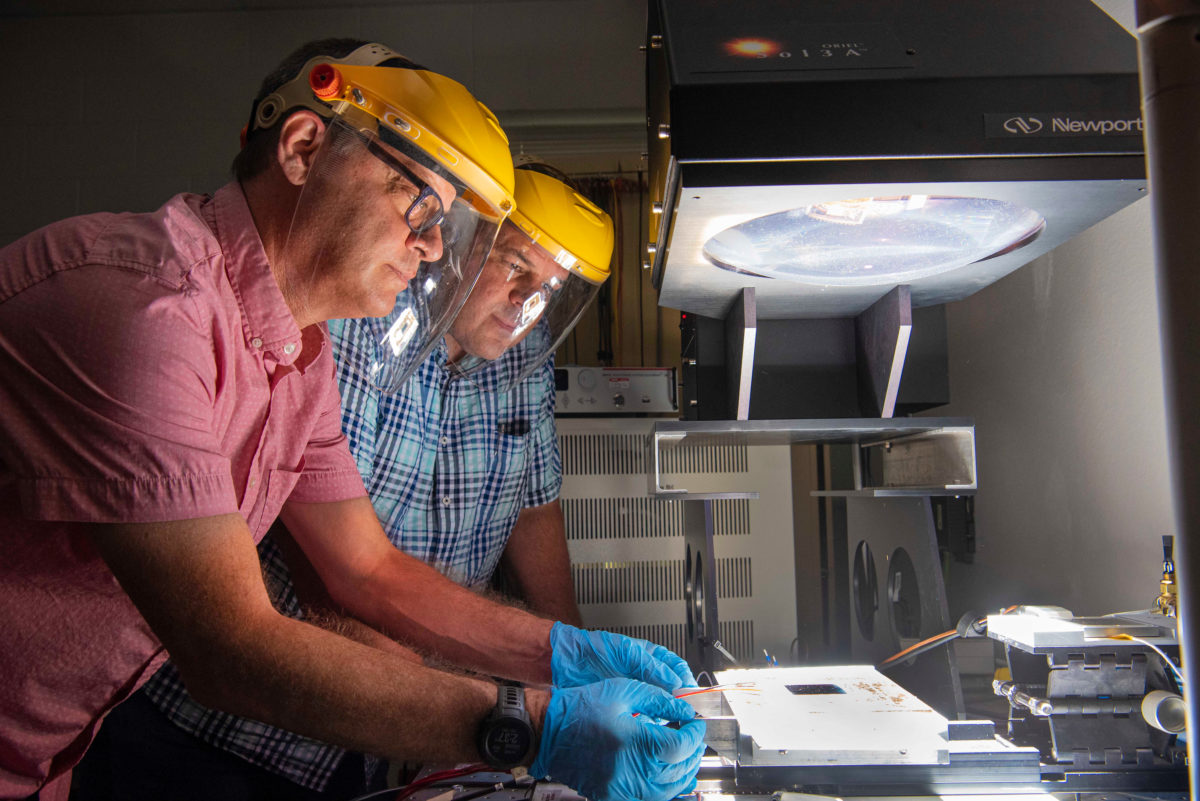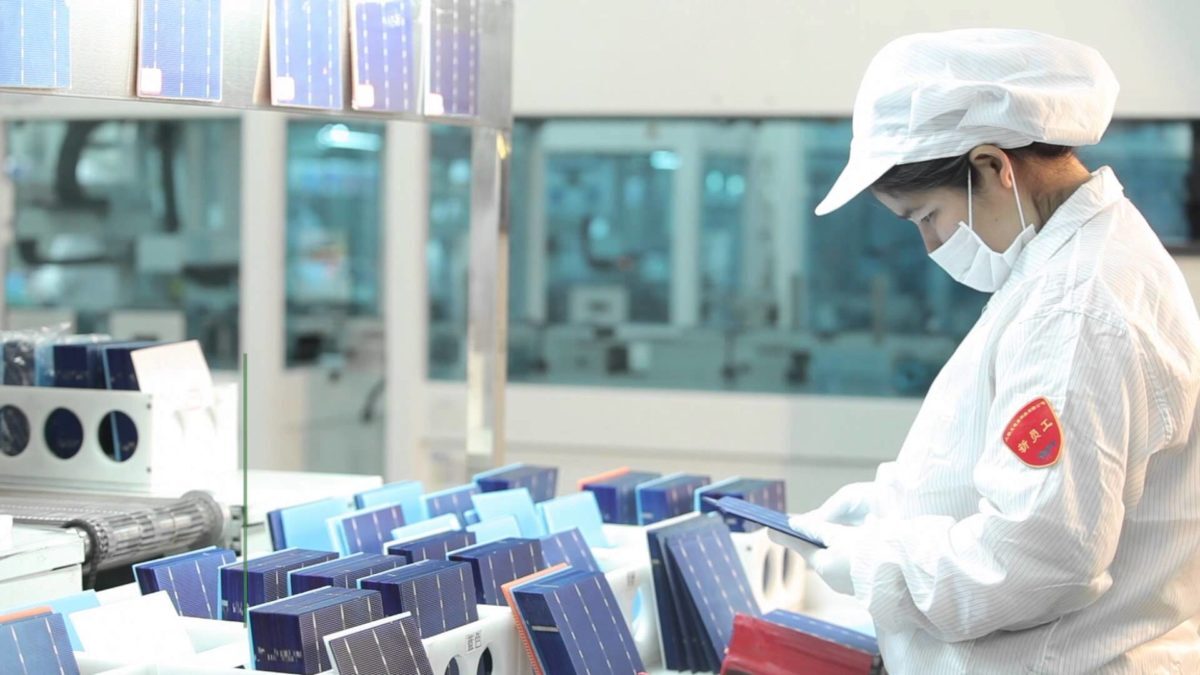Scientists in the U.S. are setting up a research project to focus on perovskite solar cells, having received $14 million from the Department of Energy (DOE). The Perovskite Photovoltaic Accelerator for Commercializing Technologies Center is being led by Sandia National Laboratories (SNL), with input from several other U.S.-based research institutes and companies.
Perovskite solar cells have received plenty of attention from researchers and the PV industry in recent years but challenges to commercial development remain. “Perovskite photovoltaic technologies may provide a pathway to low-cost manufacturing but there is still much that is unknown about this technology, especially in terms of outdoor performance and reliability,” said Joshua Stein, an SNL engineer who will direct the project. “The center will field-test and monitor this technology using a common set of testing protocols so that every device can be fairly compared.”
Sandia's project partners are the National Renewable Energy Laboratory (NREL), CFV Labs, Los Alamos National Laboratory, the Electric Power Research Institute and engineering firm Black & Veatch.
Common language
Perovskite cells differ from silicon and other commercial PV technologies in several ways, meaning new standards will be needed to accurately measure their performance. Establishing such standards will be among the center’s first jobs. “Right now, it’s like the Wild West,” said Stein. “We would like to craft a clear set of test protocols that have been validated and vetted by the industry to create a rubric, or set of goalposts, so that companies that are getting into perovskite solar technologies know what they need to do.”
Within its first year, the project plans to begin outdoor testing of at least 30 perovskite solar modules, with plans to expand to 50 kW of full systems.
Determining reliability is another of the stumbling blocks perovskites have faced and the center will also be working on meaningful accelerated testing to better understand degradation and the long-term performance of perovskite cells and modules. “NREL’s role in leading the reliability focus area is to provide a lot of the scientific basis behind understanding reliability in perovskite-based solar modules,” said NREL scientist and deputy director of the new center, Laura Schelhas. “This means looking at the degradation of these materials in contrast to traditional solar cell materials; what is causing this degradation; how to test for it; and how to accelerate it.”
Bankability
The center will also help companies make the jump into commercial development of perovskites and conduct assessments of various approaches, to advise which offer the best potential at large scale. “I see this center as a way for technology developers, who generally don’t have a strong commercial background, to receive invaluable guidance on what they need to achieve to be commercially successful,” said Ralph Romero, senior managing director of Black & Veatch Management Consulting’s bankability practice.
The center will initially work with perovskite PV companies to develop ‘bankability roadmaps,' within two years, and complete bankability assessments by the fourth year.
“The DOE has made this investment to create an independent and neutral assessment center,” said Schelhas. “Hopefully, this will lead to U.S. manufacturing of perovskite solar panels.”
This content is protected by copyright and may not be reused. If you want to cooperate with us and would like to reuse some of our content, please contact: editors@pv-magazine.com.




By submitting this form you agree to pv magazine using your data for the purposes of publishing your comment.
Your personal data will only be disclosed or otherwise transmitted to third parties for the purposes of spam filtering or if this is necessary for technical maintenance of the website. Any other transfer to third parties will not take place unless this is justified on the basis of applicable data protection regulations or if pv magazine is legally obliged to do so.
You may revoke this consent at any time with effect for the future, in which case your personal data will be deleted immediately. Otherwise, your data will be deleted if pv magazine has processed your request or the purpose of data storage is fulfilled.
Further information on data privacy can be found in our Data Protection Policy.